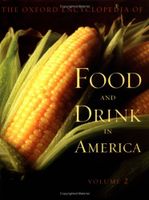Label
All
0
Clear all filters
Sugar
Appears in
Published 2004
Sugar has long played a complex role in American history, affecting economics, politics, and diet. Supporting early colonial empires of the Dutch, French, and English, sugar was the most important commodity coming from the tropics, emerging as the dominant plantation crop of Barbados by the 1640s and Jamaica by the early 1700s. Throughout the eighteenth century, sugar was Britain’s most important colonial import, surpassing the value of all other imports combined. With sugar as its anchoring crop, the Caribbean formed the center of a growing Atlantic commerce involving three continents: Africa supplied the vast number of bodies, through human bondage, needed to cultivate the labor-intensive crop; North America provided raw materials, including the timber used to build the increasing number of ships for transporting the commodity; and Europe generated goods and luxuries for its own and export markets.
Become a Premium Member to access this page
Unlimited, ad-free access to hundreds of the world’s best cookbooks
Over 160,000 recipes with thousands more added every month
Recommended by leading chefs and food writers
Powerful search filters to match your tastes
Create collections and add reviews or private notes to any recipe
Swipe to browse each cookbook from cover-to-cover
Manage your subscription via the My Membership page
Best value
In this section
Part of
Advertisement
Related Recipes
-
-
-
-
Related Reference
-
-
-
-
Advertisement
The licensor does not allow printing of this title



